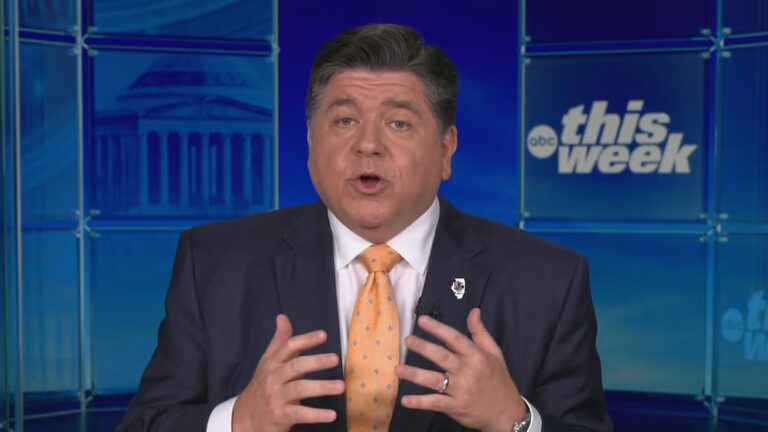
Days after a mass shooting in El Paso, Texas, in which the gunman reportedly targeted Latinx people, Democratic presidential candidate Amy Klobuchar is releasing a plan for how she would use the presidency to fight hate crimes.
The plan, which was exclusively shared with Vox ahead of its release Thursday afternoon, calls for using federal resources to support marginalized communities targeted in acts of violence and for strengthening federal efforts to address domestic terrorism, particularly by white nationalists.
The plan comes amid attention to the El Paso shooting that left 22 people dead and two dozen others injured, many of the victims were Latinx. The shooter is reported to have written a manifesto that used anti-immigrant language, referring to Hispanic and Latinx communities as a threat to the future of the United States.
“The events of the last week have served as a disturbing reminder that hate crimes are on the rise in our country,” Klobuchar said in an emailed statement to Vox. “As president, I will end the hateful rhetoric that has become all too routine during the Trump administration and make combating domestic terrorism and hate-motivated violence a priority.”
Klobuchar’s plan calls for using a multi-pronged approach to fighting hate crimes, and largely focuses on the federal government working with law enforcement agencies and communities to address the issue.
The Minnesota senator notes that her new plan continues her years-long effort to fight hate crimes that began during her time as the Hennepin County attorney in Minnesota from 1999 to 2007. During her first term as a senator, Klobuchar was a sponsor of the Matthew Shepard Local Law Enforcement Hate Crimes Prevention Act, a bill that provided additional assistance for the investigation and prosecution of hate crimes.
Klobuchar’s hate crimes plan arrives as a number of candidates speak out about the importance of fighting racism and white supremacy as the number of reported hate crimes have continued to increase annually since 2014. Several candidates have specifically condemned the rhetoric of President Donald Trump, arguing that his call for four Democratic congresswomen of color to “go back” to other countries and his claims that immigrants and refugees at the border are mounting an “invasion” of the country are just some of the ways he has encouraged racism.
Klobuchar proposes fighting hate crimes in two ways
Klobuchar’s plan to address hate crimes is largely broken down into two parts: working with law enforcement, and working with communities.
For the first area, Klobuchar proposes actions like directing the Department of Homeland Security to resume tracking “right-wing extremism,” and preventing those convicted of violent hate crimes from purchasing firearms. She also calls for making lynching a federal hate crime, a proposal that is similar to a measure unanimously passed by the Senate in December 2018.
Klobuchar’s plan also calls for more resources and power to be dedicated to fighting domestic terrorism, particularly that of white nationalists. She specifically supports requiring federal law enforcement agencies “to regularly assess the threat of domestic terrorism and increase training and resources for state and local law enforcement to address it.” She also calls for empowering law enforcement to “investigate and prosecute perpetrators of hate-motivated violence, including against minorities, people of color, immigrants, and the LGBTQ community.”
But fighting domestic terrorism is more complicated than is often acknowledged. As Vox’s Jane Coaston explains, there’s a significant difference between the public’s current understanding of domestic terrorism and its connection to white nationalism, and how federal laws and policies actually handle and classify these sorts of acts. Where the former isn’t wrong in seeing white nationalist violence as having similar effects as acts of terrorism, the latter does not treat terrorism committed by US citizens against a marginalized group as a specific crime. And much of this is due to the constitutional protections granted to all Americans.
The second part of Klobuchar’s plan, which focuses on working with communities, calls for “addressing the root causes of domestic terrorism,” and for increasing protections for areas recently targeted in hate-motivated acts of violence like places of worship. But this part of the plan still calls for specific action from the federal government, like requiring agencies like the Justice Department and the Department of Commerce to “assess how current forms of communication are being used to spread hate and recommend ways to combat threats.”
Klobuchar wants the government to get serious about fighting hate crimes
In all, the majority of the plan highlights Klobuchar’s intent to refocus government efforts on fighting hate crimes and domestic terrorism, issues that have not seen as much attention under the Trump administration. The current president has faced criticism for his comments about communities of color, and while he has recently issued lukewarm statements calling for America to stand against hate in the wake of the El Paso shooting, he has not acknowledged how his own attacks on Congress members of color, and his repeated argument that Hispanic and Latino immigrants are an “invasion” against the US, help intensify racism against marginalized communities.
Klobuchar has been one of several candidates to condemn these sorts of comments from the president, both in the wake of El Paso shooting and after other attacks on racial, ethnic, and religious minorities, arguing that his presidency gives comfort to white supremacists. “His rhetoric doesn’t help,” Klobuchar told CNN in March.
Still, dealing with hate crimes is a notoriously difficult practice, in part because so many crimes are dealt with at the local and state level, and some of these areas lack formal hate crimes laws. As Vox’s German Lopez has reported, prosecuting hate crimes can be difficult, and data on the effectiveness of hate crimes laws can be mixed depending on what type of criteria is being used.
Klobuchar’s plan focuses on outlining the broad areas she would address rather than explaining the specific ways she would bring about those changes. That leaves some questions unanswered about the exact tools and policies she would use to force attention to hate crimes. But if anything, her platform serves as a reminder that years after the Trump administration has deprioritized these issues, many Democratic candidates want to do the opposite.
Sourse: vox.com






